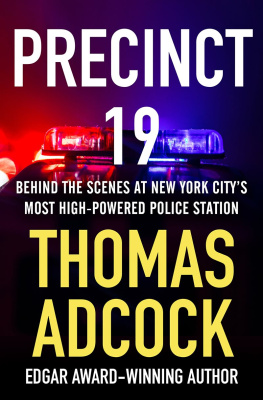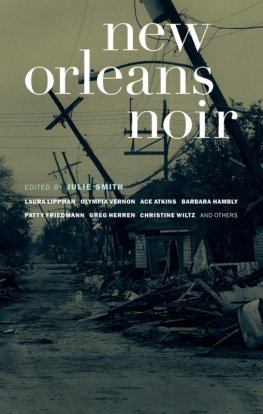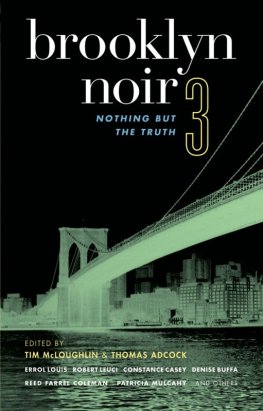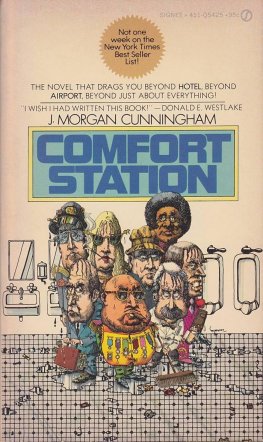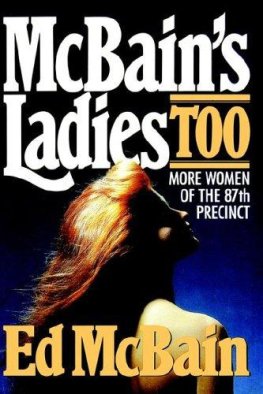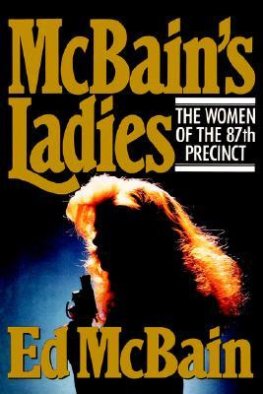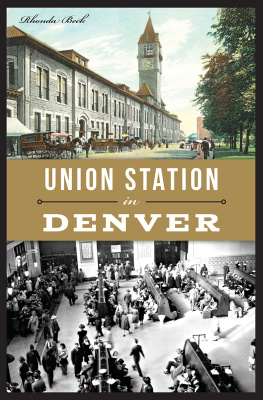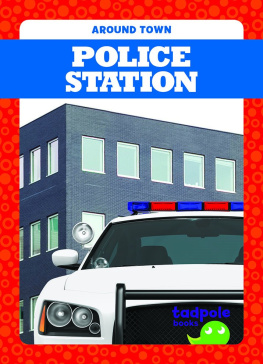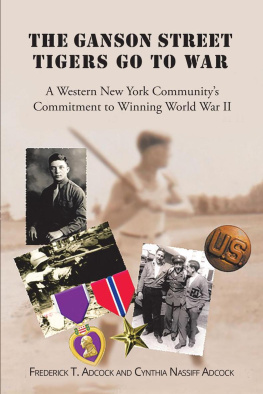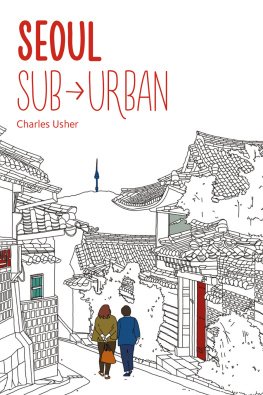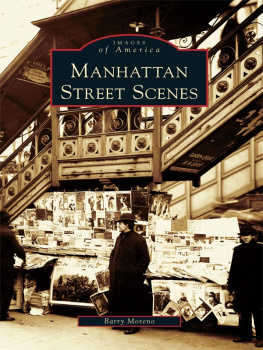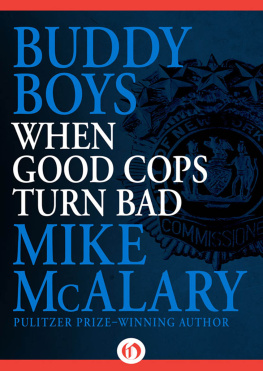Pagebreaks of the print version




Precinct 19
Behind the Scenes at New York Citys Most High-Powered Police Station
Thomas Adcock
For Anne and Jessica
Acknowledgments
Writers sometimes dont mind confessing that behind the scenes, as it were, there are lots of big people with lots of important help and encouragement. Without them, the authors might have just one more fish story to swap with his pals. Thats why books have pages like this. Accordingly, my salutes to:
Charles Sopkin, for suggesting this book in the first place;
Liz and Jim Trupin and Kim Sykes, for supporting the project heart and soul;
The Angel of 103rd Street, a remarkable young man whose Spanish translation and eye-opening companionship were invaluable to my travels through East Harlem.
some fairly mean streets, pitiful sights and some downright vicious types. All of which makes the job of the Nineteenth Precinct cop simultaneously challenging, coveted, dreaded and confusing.
I think the cops of the Nineteenth Precinct are the best in the world. Not to an officer, mind you, but certainly as a precinct unit. There are those who drink too much, those who are full of self-pity and those who cut corners. But there are also cops like Tony Ciffo and Jack Clark and John Laffey and Charlie Leinau. Few come better than these.
I spent about a year tagging along with the cops of the Nineteenth Precinct, who were good enough to allow me to be a fly on the wall with pad and pencil. There were times when I was trusted as an outside observer and times I wasnt and that was the open-ended deal.
All of the incidents in the resultant book are real. Generally, the names of crime victims are changed to protect their privacy. A number of officers portrayed in the book are composites and have fictional names. That doesnt make their experiences fictional, however, it just makes the balance of their professional and personal lives easier.
Certain editorial changes in identities, dates and circumstances were made in the writing of Precinct 19 in order to protect the integrity of cases pending before the courts. None of these changes alters the essential truths of the total story.
The reader will find, as did I, that the day-to-day life of being a cop in New York is a matter of slogging through violence and tragedy and dreariness and that sometimes the only human response is comedy. The cops of the Nineteenth Precinct are some of the funniest people Ive ever known. God help us New Yorkers if our cops should ever lose their humanity, if they should one day stop laughing.
Ive come to the point where I can pick out a cop on a crowded street, even when hes dressed like everyone else. Hes as easy to spot as a bleeding man. Heavier, it appears, full of other peoples sorrows whether he realizes it or not. And his eyes are always moving, sweeping the street to make note of who belongs and who bears watching.
When a cop starts talking about public perceptions of police officers, there is a certain paranoid tone to his voice. An officer named James Martin of Manhattans Midtown North station house told the New York Times:
This month we were all brutal racists, last month we were all drug addicts, the month before that we were drunks and sex fiends. A lot of times you get the feeling that the city doesnt care, the public doesnt care, that your partner and the other cops are the only ones you can count on.
Were the most visible, the most vulnerable and the least vocal. Cops dont talk. They never know when its going to be taken out of context, and people arent going to understand it anyway. So you just read about it, you watch it, you put on the uniform and you go out and do your job. Ive never heard a cops lament more succinctly expressed. Heres a hope that this book might knock a few holes into Officer Martins outlook.
Thomas Larry Adcock
New York, N.Y.
November 1983
Part I
Chapter 1
The lobby was jammed full of cops. Uniformed and plain-clothed, they streamed in and out of the East Sixty-seventh Street station house, greeting one another with backslaps and fraternal insults. Their hips were laden with jangling cop hardwareguns, clubs, leather-bound citation books, handcuffs, bullets and walkie-talkies. Half the cops were waiting for the sergeant to call night-shift muster back in the squad room in the rear of the station house. The other half were from the day tour and were anxious to hit the shower rooms downstairs.
A middle-aged woman in a short double-breasted jacket of lavender sude over pleated pinstriped wool trousers, a wool jacquard knit turtleneck sweater and silk scarf and snakeskin boots stood at the tall desk. A sergeant with a belly that protruded over his belt and a sweat stain running down the back of his blue shirt listened patiently as she shrieked something about her stolen Mercedes. A small-framed policewoman made her way through the crowd to the stairway, with a fat prostitute in tow who was practically comatose on heroin.
Then the maniac wandered in and the atmosphere became unusual.
He was tall, well over six feet, about thirty-five years old. And he was quite out of his mind on drugs and alcohol and private torment. All of his clothes fit him properly, but they were torn and filthy, as if hed worn nothing else for days and slept in the streets. To some imaginary companion, he offered repeated assurances, Im okay. Im okay now.
The maniacs eyes darted from cop to cop and his whole body began shaking violently as he pushed past the uniformed men, stopping in the center of the lobby. He planted his feet firmly on the floor at a wide stance, then raised his hands and started pulling at his hair and screaming, over and over, Fucking cops! Fucking cops fucked me up! Fucking cops
The woman in the sude jacket seemed annoyed by the distraction. She turned to look at the maniac, who returned her gaze and quickly unzipped his trousers. She swore and turned back to the sergeant to continue the tale of her waylaid Mercedes.
The maniac started shoving at the cops around him, poking them in the chest and shaking off their attempts to steer him toward the door and back out onto the street before he got himself into trouble. He lunged at a knot of young officers near the sergeants desk and four burly men dressed in seedy jackets and greasy sweaters, not unlike the maniacs ensemble, finally managed to grab him. They looked like garbage collectors after a hot days work. But they were cops. Street Crimes UnitManhattan, affectionally known by the acronym SCUM patrol.
The maniac was a regular customer.
A cop named Tony Ciffo drew the attention of the maniac, who spit his regard, a greeting that narrowly missed landing on Officer Ciffos forehead. The tour was not off to a good start for Ciffo.
The maniac, struggling wildly under the restraint of the four SCUM patrol cops, managed to get an arm free. He swung at Ciffo, landing a jab on his chest. Whatre you lookin at, eh? the maniac screamed at Ciffo. Wanna step outside?

